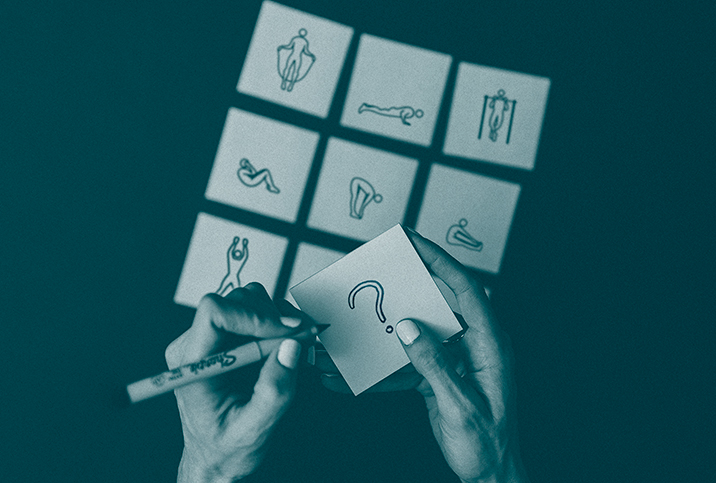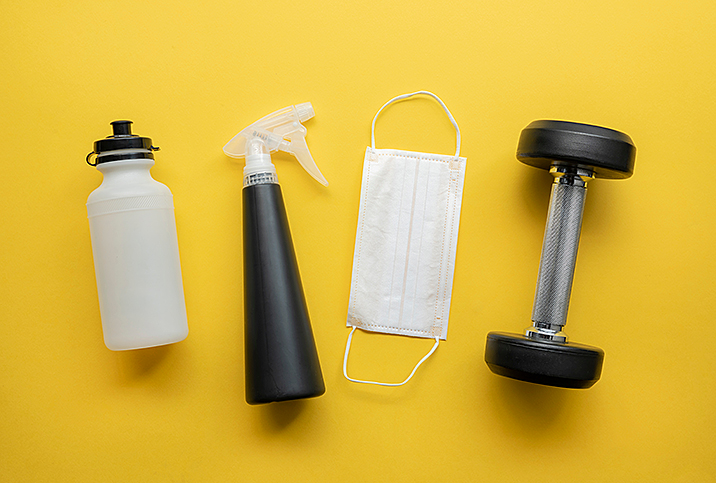How to Find the Perfect Personal Trainer

You can certainly get in shape and reach fitness goals on your own. With countless YouTube videos, streaming fitness classes, articles and books on methodologies, it's easy to assume you don't need to pay a personal trainer to help you exercise.
But you still need to discover the motivation to follow through on your workouts.
That's a potentially important reason you might consider a personal trainer. Aside from the fact that certified personal trainers are a treasure trove of specific knowledge and experience on exercise, they're usually pretty great at providing motivation and accountability, which are factors that often become stumbling blocks on the road to health and wellness.
However, this doesn't mean every personal trainer is perfectly suited to help you meet your specific goals. Personal trainers often specialize in specific demographics or styles of training, and each trainer has his or her own personality, which may or may not match your needs.
Personal training isn't cheap and is a time commitment of two to three sessions per week. If you're spending that much time (and money) with someone, you want to know they'll jibe with you.
Before you sign up for a package of personal training sessions, consider the following questions to ask your potential trainer. The answers may help you identify your own goals and purpose for hiring a trainer, and help you ensure you're hiring the right trainer for you.
Logistics and budget
It's important to think about your schedule: How much time can you carve out for training and what type of environment do you want to train in? For instance, do you want to train at a gym? Do you want online sessions? Do you want a trainer to meet you at your house or a park? Would you prefer a hybrid arrangement where you have in-person and online sessions? And, of course, how much can you afford to spend? Personal training can cost anywhere from $40 to $100 per hour, or more if you're seeking someone with specific expertise or an already-packed client schedule, so you need to think about what you can reasonably afford.
These are just some of the questions you should have at the beginning of your search—it gets more involved from here.
With this information on hand, prepare to communicate your needs and desires with your trainer up front to ensure a good fit. Let them know what you're looking for and ask about their rates. Before you take the conversation further, ensure they're actually available when you want to meet.
"If someone has a specific time and day they want to train, I suggest asking that early on," said Missy Berkowitz, C.P.T. and owner of Dig Your Deepest, based in Playa Del Rey, California. "Because if, for instance, someone can only work out at 6 a.m. and the trainer doesn't have that available, they can save themselves from having a whole conversation."
Personal health and fitness goals
As important as it is to develop goals focused on the acts of "getting healthy" or "getting in shape," they're often too broad. Before you meet with a potential personal trainer, you need to think about your "why" and "what."
Is your goal to lose weight? If so, how much weight and how quickly do you want to lose it? Do you want to build strength or muscle mass? If so, is there a particular type of training that interests you? Do you want to learn how to lift weights? Do you want to focus on bodyweight training you can do at home? Do you have a fitness-related goal, like running a 5k race or completing a triathlon? Are you hoping to see changes in your health metrics, like lower cholesterol readings or improved blood pressure?
You don't have to have every answer, but even a muddled series of goals can help you and your trainer work together to solidify a plan. It's fairly important to ask your potential trainer how they intend to help you set goals and track your progress. As the adage says, "If you don't know where you're going, how will you know when you get there?"
Before you meet with a potential personal trainer, you need to think about your 'why' and 'what.'
"I would ask a potential personal trainer how they work with their clients to achieve their goals and how they stay on track/target with mutually developed goals," said Gina Newton, a holistic health coach and personal trainer with Fresh Starts Registry, based in North Andover, Massachusetts. "I would ask how the trainer and I can develop goals that are aligned with the trainer's expertise and my personal goals."
As part of the tracking process, keep a realistic timeline in mind. How often would metrics such as body fat percentage, waist circumference or VO2 max (a measure of cardiovascular fitness) be measured? How would the trainer and you track progress even if the numbers on the scale haven't moved?
As part of this process, it's also important to be honest with yourself about how you feel about tracking progress. Berkowitz said if you have body image issues and don't want to step on the scale or take before and after photos, it's important to be upfront about that with your trainer. If weigh-ins or progress photos are a part of his or her "system," it might not be a good fit, and that's OK. The right trainer can offer a goal-tracking system that works for you. Tracking how much weight you can lift or how long you can walk at a given pace are good ways to see improvements without taking measurements.
Touch on certifications, degrees and specialties
It's important to know the background of the trainer you plan to employ. Just because a trainer has a "C.P.T." (certified personal trainer) behind their name doesn't mean they have the training or specific certifications ideal for your needs. In fact, most trainers tend to specialize in helping certain types of clients. For instance, they may work exclusively with athletes, older adults, or pre- and postnatal clients. To determine this, ask, "What type of client do you usually work with?"
Other similar questions to try to narrow down the trainer's specialties and whether they match your needs might include:
- What certifications or degrees do you hold in the field?
- Have you received any additional training? Many certifications require continuing education in the form of seminars or conferences.
- What age bracket do you specialize in?
- I've had a heart attack; have you worked with cardiac patients before? There are certifications that are specific to conditions such as heart disease, cancer and diabetes.
- I've had an injury, like a torn ACL or shoulder bursitis. Are you familiar with working with injuries and addressing weaknesses?
- If an exercise is painful, how would you help me work around it?
Ask about being part of a health team
Trista Zinn, a master trainer and founder of CoreSet Fitness, based in Toronto, pointed out that if you're working with a medical team or therapist, it's important to ask if the trainer has worked with feedback from other specialists before.
She suggested the following questions to help get an idea of the trainer's comfort level with being a part of a rehabilitative team:
- Would you be open to connecting with my physio or other healthcare providers and taking a team approach to my overall health and well-being?
- If another healthcare provider made suggestions on how to modify my program to suit my individual needs, would you be flexible with my program plan?
Get personal: You want to click with your trainer
Finally, it's important to remember you'll be spending a lot of time with your trainer and you want to enjoy the time you spend together. Getting a feel for their personality is an important part of the initial conversation.
Berkowitz suggested the following questions to get a sense of how a training session would be structured and how you might get along with the trainer:
- How would your clients describe you as a trainer?
- What's your training style like?
- I have anxiety about exercising. How would you make me feel comfortable during sessions?
- What's your motivation style like?
- What can I expect in my first session?
- How would you help me stay accountable? Do you have policies for missed sessions?
You could also ask for a couple of references from clients who were once in the same position as you are now, so you can get firsthand feedback.
Remember, you can always switch trainers
You don't have to ask every question and you don't have to spend a full hour getting to know a personal trainer. You just need to get a feel for their style and whether they're equipped to meet your needs.
Commit to a short string of sessions—four to eight sessions is a good place to start—and be upfront that you want to see how it goes. If after a few sessions you want to continue, you can talk about a longer commitment. If not? There are lots of personal trainers and fitness programs out there. It's worth it to find one that's truly a good fit for your needs.


















